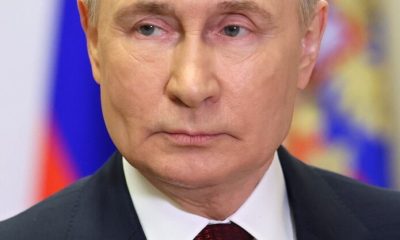Headline
Gov’t bought Sinovac vaccines ‘close to P650 per dose’: Palace

MANILA – Malacañang on Sunday rejected claims that the vaccine developed by China’s Sinovac Biotech Ltd. costs PHP3,6000 per dose, insisting that they were cheaper than other options.
In an interview over dzBB, Presidential Spokesperson Harry Roque said the national government bought Sinovac vaccines for a price close to the PHP650 per dose offered to Indonesia.
“Ang aking ia-assure po sa inyo ‘no, fake news po iyong kumakalat na PHP3,600 per dose daw iyong singil ng China. Hindi po, ang ating presyo, bagama’t hindi pa po puwedeng i-anunsiyo kung ano talaga ang presyo ng Sinovac ay hindi po nagkakalayo o hindi nalayo doon sa presyo ng Indonesia nasa bandang P650.00 kada po turok (I can assure you that the claim that China is charging PHP3,6000 per dose is fake news. While I cannot announce the price of Sinovac, it’s not far from the price given to Indonesia, which is about PHP650 per dose),” he said.
Roque reiterated that China was hesitant to have the former announce the prices of their vaccines as they might be compared to prices in other countries.
Last week, he said the vaccines developed by Sinovac were sold to the Philippines at a “BFF” price.
“Ang presyo kasi ng Tsina, hindi kagaya ng ibang kumpanya na kapitalista na market-dictated. Ang presyo ng Tsina pupuwede nilang baguhin lang, wala silang pakialam, depende kung sino ang bibili. At iyon po iyong dahilan kung bakit ayaw ipasapinal mismo at ipa-anunsiyo mismo ng Tsina mismo, kasi nga baka magalit naman iyong hindi masyado nilang BFF na alam nilang bumili ng mas mahal (The prices of China are not like other capitalist countries that are market-dictated. China can change their price, they don’t care who buys them. And that’s the reason why China doesn’t want to announce the actual price because other countries which are not their BFF might get angry),” he said.
He also brushed aside senators’ calls to reconsider its decision to purchase Sinovac vaccines, citing President Rodrigo Duterte’s declaration that he would take responsibility for the health and safety of all Filipinos.
“Ang sabi ng Presidente, sabihin na ng mga senador ang gusto nilang sabihin, in the end, it is the President that is ultimately mananagot doon sa ating taumbayan. So, lahat na po ng fake news, pupuwedeng ilabas, pero in the end po, ipatutupad po nito ng Presidente dahil ito po ay nakakabuti sa ating mga mamamayan (The President said the senators can say what they want to say. But in the end, it is the President who is ultimately going to be responsible to the people. Fake news will come out, but in the end, the President will implement [what is right] because it is good for the people),” he said.
According to Roque, the government was not favoring any vaccine supplier, but it was just a matter of which vaccine brands come first.
He said the government will not force anyone to receive the vaccines, but reminded the public about the risks of contracting the new Covid-19 variant.
“Ang aking paalala lang sa mga taumbayan, wala pong sapilitan, pero nandiyan na nga po iyong bagong variant (My only reminder to the public, we won’t force you, but the new variant is still there),” he said.
Vaccine czar Carlito Galvez Jr. earlier said the Philippines has secured 25 million doses of Sinovac vaccine with the first 50,000 doses expected to arrive in February.
Galvez on Wednesday said the prices of coronavirus vaccines circulating in various social media platforms and other publications are not the same as the government’s negotiated prices under the COVAX facility, an official said on Wednesday.
He said the price lists circulating online are based on commercial value.
“We want to caution the public on the prices of vaccines circulating online and in many publications. These are market prices and not the COVAX prices that were in our negotiations with vaccine manufacturers,” he added.
Galvez said the prices under the COVAX facility, a global risk-sharing mechanism for pooled procurement and equitable access to Covid-19 vaccines, are almost 300 percent lower than the market prices.



























